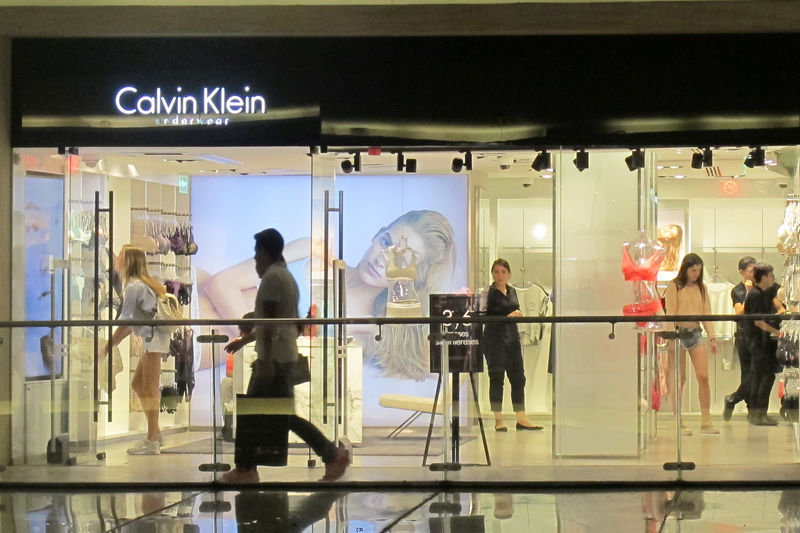(Reuters) - PVH Corp (N:PVH) on Friday allayed investor concerns over its Calvin Klein business and said early holiday sales were above its expectations, sending its shares up as much as 5 percent.
Shares fell 8 percent in extended trade on Thursday after a weakness in the high-end brand in the third quarter led the company to report its first revenue miss in at least two years.
"We went too far, too fast on both fashion and price," Chief Executive Officer Emanuel Chirico said on a post-earnings call on Friday.
"We're working on fixing this fashion miss, and we believe that our CK Jeans offering will be much more commercial and fashion-right beginning in 2019," Chirico said.
The company will also reevaluate spending on Calvin Klein's 205W39NYC line to improve profit margins in 2019.
Management appears to not only have a better understanding of the driver behind Calvin Klein's weakness but has executed clear fixes to self-inflicted missteps of the past, J.P. Morgan analyst Matthew Boss said in a note.
Chirico said the company was seeing strong sales at key brands Calvin Klein and Tommy Hilfiger in North America since the start of the holiday season.
"Given commentary that includes accelerating Q4-to-date results and a plan in place to improve Calvin Klein operating margins in FY19, we are taking this opportunity to get incrementally more constructive on the stock," said C.L. King & Associates' analyst Steven Marotta, who upgraded his rating to "strong buy" from "buy".
PVH forecast fourth-quarter adjusted earnings of $1.58 to $1.60 per share, in line with analysts' expectation, according to IBES data from Refinitiv.
The company also flagged sluggish consumer traffic in China in the third quarter, compared with the first two quarters, due to a softening economy and an escalating trade dispute between Washington and Beijing.
"We're still moving but the traffic levels in the store are not what they were in Spring season," Chirico said.
PVH said it expected $75 million increase in cost of goods if the proposal to raise tariffs to 25 percent is implemented.

"It's not insignificant," Chirico said, adding that if the raised tariffs are implemented on Jan. 1 there would be "no time to react".